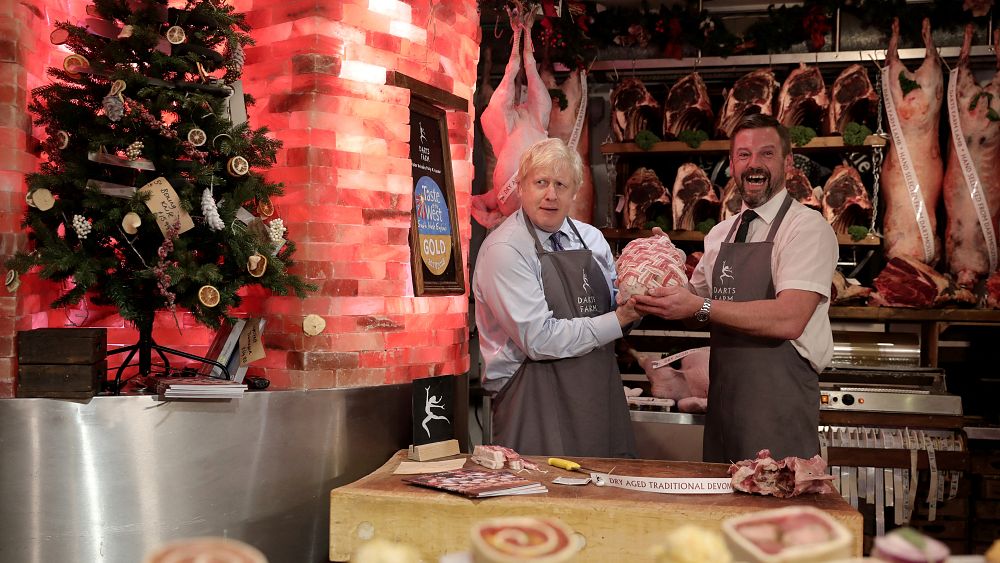
Job vacancies in the UK rose to a record high of nearly 1.2 million, official figures showed on Tuesday, a further sign that the British economy is experiencing worker shortages across many sectors.
The Office for National Statistics pointed to shortages across the whole economy, including hospitality and transport.
For weeks there have been long queues at petrol stations as motorists struggle to fill up their cars amid a shortage of lorry drivers to deliver the fuel. The sight of supermarket shelves empty of some products has been a common sight for even longer.
The causes are widespread but it’s clear that the combination of Brexit and the coronavirus pandemic prompted many EU workers to leave the UK and head home.
The UK’s post-Brexit immigration rules are highly restrictive for workers classed as low-skilled, and the British government has only agreed to limited visa schemes to plug gaps in the workforce, refusing to bow to industry demands.
The labour shortage has led many fruit and vegetable farmers to cut their planting for 2022, after crops were left to rot in the field due to the labour shortage.
Farmer Julian Marks runs one the UK’s largest suppliers, Barfoots of Botley. Standing in front of a field of unpicked broccoli in southern England, he now faces tough choices in the battle to harvest the crop by Christmas.
The task is very labour intensive: every stem of broccoli is selected and harvested by hand. But seasonal workers are now heading home abroad, coming to the end of their six-month visas.
“It’s a constant worry now and we’re reviewing everything that we do as a business,” he told Euronews. “I can’t speak for the rest of horticulture but I’m sure that they are doing the same thing, deciding: ‘If we plant the crop, are we going to be able to harvest it? Where are we going to get the labour from for next year, the next season?'”
The New Year traditionally sees an uptick in demand as people try to follow resolutions to eat healthily after some festive over-indulgence. But Marks is concerned he won’t have enough workers to respond.
“Without seasonal workers from abroad, the next few years are going to be particularly challenging and I think you’ll see a change in the range of British produce that’s available if that is the case.”
For meat growers too, the labour shortage has led to food going to waste.
Kellybronze Turkeys in Essex has relied on European workers, but over recent weeks the dearth of available hands to pack the poultry means turkey products have had to be destroyed and thrown away – a loss of some £3,000 (€3,535) a week. A shortage of drivers has compounded the problem.
“You do all this work, you grow stuff and there are people there that want it and need it, and you’re throwing it in the bin, it’s a tragic waste. The shelves are pretty empty – the situation could get dire if we don’t get help,” farmer Paul Kelly told Euronews.
He says the farm is managing and the outlook concerning delivering turkeys for Christmas dinners is “ok at the moment”. Kelly’s business had the foresight to secure “settled status” for its European workers.
But businesses relying on employment agencies are suffering “trauma”, he says. “They do not have enough people to do the jobs required.”
Kelly cites reports of “chickens being killed on farms, pigs shot in fields, vegetables thrown away”.
“People aren’t suffering at the moment, whilst we’re not going hungry. There’s inconvenience in the supermarkets but if you take a long, hard look, the shelves are pretty empty, and the situation will get dire if we don’t have help.”
The UK is reportedly looking to import turkeys from France and Poland ahead of Christmas, to make up for any shortfall.
Resisting calls for more temporary immigration to reduce labour shortages, the government has instead told businesses to do more to invest in British workers.
At last week’s ruling Conservative Party conference, Boris Johnson only fleetingly referred to the current shortages, describing them as “the present stresses and strains – which are mainly a function of growth and economic revival”.
Ruling out resorting to what he called “uncontrolled immigration”, he promised a drive towards a “high wage, high skill, high productivity” economy, admitting however that this would “take time” and would “sometimes be difficult”.
“But that was the change that people voted for in 2016 and that was the change they voted for again powerfully in 2019,” the prime minister said.
Such arguments do not wash with farmer Julian Marks of Barfoots. He says his area has very low levels of levels of unemployment. The farm has done “an awful lot to try and attract British workers”, but it has not worked.
He also rejects as “patently untrue” government accusations that farmers have not invested enough in automation since the Brexit referendum in 2016.
“The challenge will be consumers seeing less choice on their shelves, and poorer availability,” he told Euronews. “I always remember the prime minister saying that he was pro-cake and pro-eating cake. But I think the future looks like no cake.”
Watch Luke Hanrahan’s report in the video player at the top of the article.